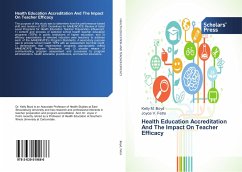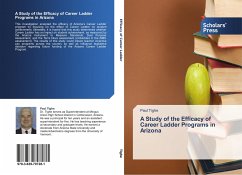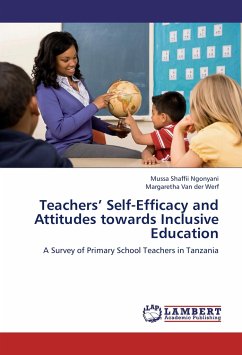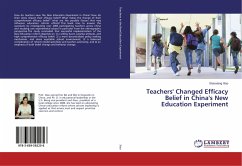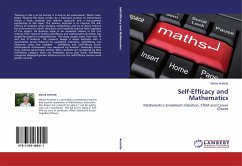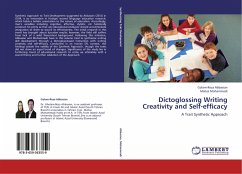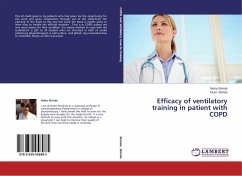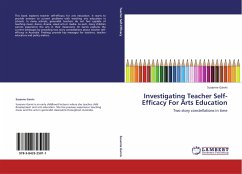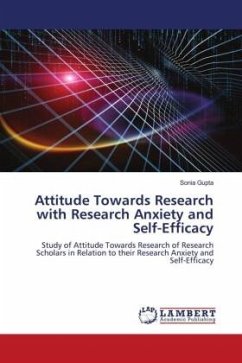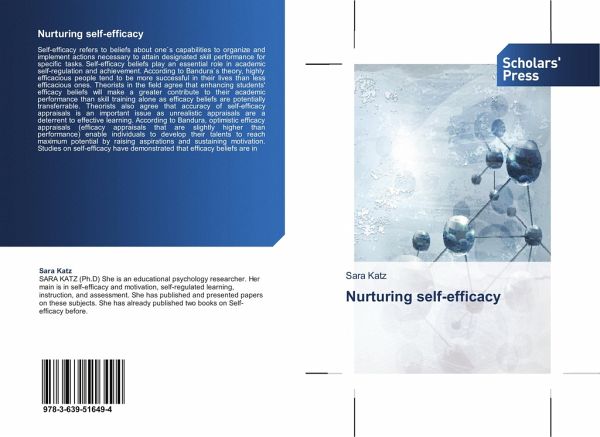
Nurturing self-efficacy
Versandkostenfrei!
Versandfertig in 6-10 Tagen
40,99 €
inkl. MwSt.

PAYBACK Punkte
20 °P sammeln!
Self-efficacy refers to beliefs about one`s capabilities to organize and implement actions necessary to attain designated skill performance for specific tasks. Self-efficacy beliefs play an essential role in academic self-regulation and achievement. According to Bandura`s theory, highly efficacious people tend to be more successful in their lives than less efficacious ones. Theorists in the field agree that enhancing students' efficacy beliefs will make a greater contribute to their academic performance than skill training alone as efficacy beliefs are potentially transferrable. Theorists also...
Self-efficacy refers to beliefs about one`s capabilities to organize and implement actions necessary to attain designated skill performance for specific tasks. Self-efficacy beliefs play an essential role in academic self-regulation and achievement. According to Bandura`s theory, highly efficacious people tend to be more successful in their lives than less efficacious ones. Theorists in the field agree that enhancing students' efficacy beliefs will make a greater contribute to their academic performance than skill training alone as efficacy beliefs are potentially transferrable. Theorists also agree that accuracy of self-efficacy appraisals is an important issue as unrealistic appraisals are a deterrent to effective learning. According to Bandura, optimistic efficacy appraisals (efficacy appraisals that are slightly higher than performance) enable individuals to develop their talents to reach maximum potential by raising aspirations and sustaining motivation. Studies on self-efficacy have demonstrated that efficacy beliefs are in



